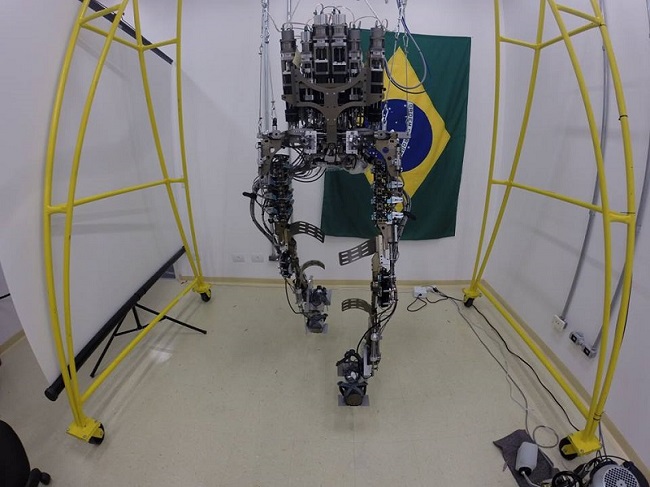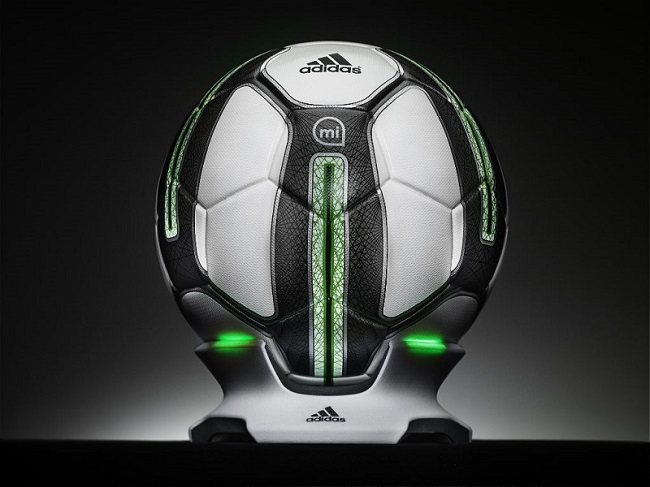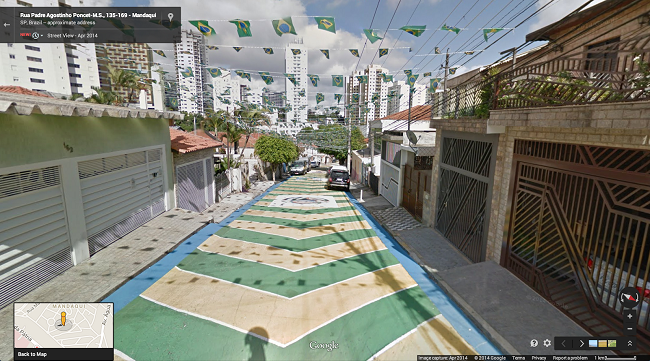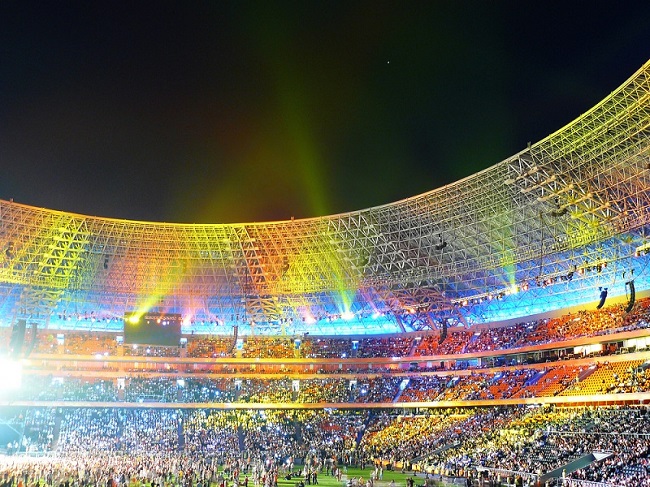FIFA, the governing body for football, is notoriously sceptical of technology and yet this year’s World Cup will see some additions and association with it that will make it the most tech-fuelled one yet.
Goal-line technology
By far the biggest advancement at this year’s tournament will be FIFA’s introduction of goal-line technology which will let the referee know when a ball has entirely crossed the line, or whether the crossbar or defender is the hero of the hour.
In the last two years, the technology has been gradually rolled out across various competitions and leagues, particularly in Europe with the English Premier League adopting it, despite the fact the technology has been in existence for nearly 10 years.

Now in Brazil, German company GoalControl will be testing and implementing its goal-line technology in each of Brazil’s 12 World Cup stadia with its seven cameras dotted around the ground focused on each goalmouth taking 500 pictures every second.
When a goal goes in, the referee will be able to check his or her smartwatch to see whether ‘Goal’ has flashed up on the screen, which will hopefully put an end to phantom goals and some of the most controversial moments in the game.
Interestingly, however, the company’s own national league association, the German Football League (DFL), has ruled out using it in the league because it felt it wasn’t financially viable.
Bionic suit
Last April, it was revealed that one lucky paraplegic child will be able to get his or her chance, for the first time, not only to kick a football for the first time, but also take part in the first kick of this year’s World Cup, thanks to the help of a super-powered exosuit.
Controlled by the user’s mind, the exosuit will be built from a combination of lightweight alloys and hydraulic systems and will be, given the circumstances, easy to operate and powered by a battery pack that will aim to have two hours of continuous use, more than enough for a football match!

Co-ordinated by Prof Gordon Chang working out of Munich’s Technical University, the team responsible for the suit’s design has been researching robotic humanoid technology for a number of years and will now no doubt be waiting anxiously to see how the suit works while the entire world watches.
MiCoach Smart Ball
Adidas is another company deeply associated with football that is attempting to bring the sport into the 21st century with the MiCoach Smart Ball, which has packed hundreds of miniature sensors into a football to help players develop their skills and learn why the way they strike a ball has the outcome it does.
It will also be able to connect with the player’s Apple device to send the information, as well as tracking progress over a period of time.

Through the ‘Challenge Yourself’ app that can be installed on an iOS device, the user can set themselves challenges and targets to achieve by a certain time.
Perhaps more in the price range of professional footballers, the Smart Ball will cost €299 on its European website.
Google Maps in Brazil
Google, never one to miss an opportunity, has given the millions of fans visiting Brazil, and even those in the farthest-flung locations in the world, the opportunity to explore the World Cup stadia, through Google Street View, as well as some of the country’s most-decorated and famous streets and locations, such as Iguaçu National Park and St Michael of the Missions.

Rua Padre Agostinho Poncet, São Paulo, via Google Street View
While the number of Irish visitors is likely to be low given Ireland’s lack of qualification for the tournament, everyone else visiting the country will be able to access Brazil’s bumped-up live information feed across maps, including public transport timetables, indoor maps of airports, football stadiums and shopping malls, and turn-by-turn navigation.
Giant outdoor 4K screens for Rio de Janeiro
4K TVs are still largely out of reach for many of us avid TV-watching football fans, and even if we were we are still waiting for most broadcasters to catch up and broadcast it to the public and not just to a few TV executives.

However, for fans travelling to one of Brazil’s most popular cities, Rio de Janeiro, they will be able to see most of the games in ultra-HD across a number of 65-inch screens presented by Sony and set up in the Jardim Botanico neighbourhood of the city.
The decision to broadcast the events in 4K on giant screens has been in the pipeline for a considerable amount of time now, as both Globo and Sony have previously tested the monster screens in an invitation-only event for a number of selected people as part of Brazil’s hosting of the Confederations Cup last year, widely considered a warm-up event for hosting the World Cup this year.
Brazil World Cup TV image via Shutterstock